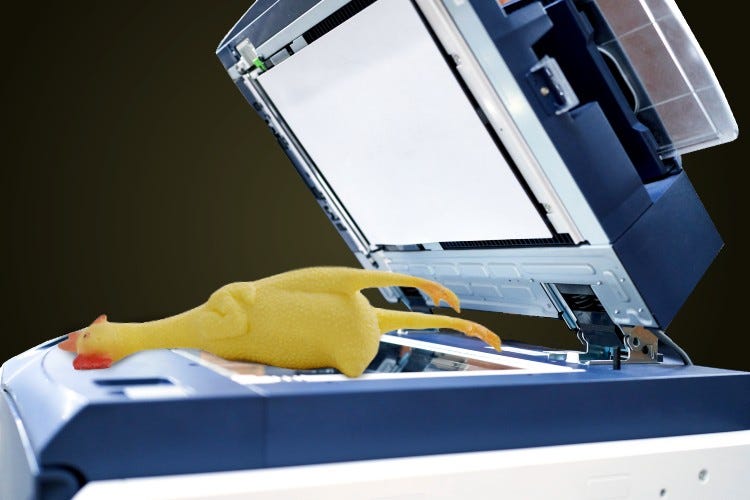
Most comedians’ view of joke theft could be described as “pre-Hamurrabian”, which is to say: Punishments should be boundless and fueled by seething rage. That’s because in comedy, you basically are your act. And you build that act by:
Writing down every dumb idea you have and revisiting those ideas later, which usually makes you want to dive in front of a train;
Turning the least-bad ten percent of your ideas into jokes that you test out in front of six non-English-speaking alcoholics at McZany’s Laugh Crater way out in Boredomwank County;
Packing the least-bad ten percent of those jokes into a set that you send to a producer in LA, who will give the set to their assistant, who will give it to their roommate, who will watch the first ten seconds on a treadmill and send back the note: “Needs more zazzle”;
Finally performing your least-bad two minutes on The Comedy Spasm Brought To You By MeowMix, a CD-ROM-only comedy showcase sold at Bolt Bus bathroom stops throughout the lower Jersey Turnpike, and thinking “Damn, I really made it!”
You can see why having someone steal a bit that you created, tested, and honed is infuriating beyond belief. And — though this is impossible to measure — it feels like joke theft is becoming more common. For example, here’s a joke from the new Peacock show Mr. Throwback:
I find it impossible to believe that nobody involved with that show knew that the same joke is in The Bear, i.e. the show that just set a record for the most Emmy nominations ever by a comedy. Look:
And it gets worse: That joke is also in the 2004 movie Garden State.
I cannot think of a more damning sentence about the current state of comedy than “The trailer for a big-budget network show featured a well-known joke from a still-running multiple Emmy-winning show, which, itself, stole the joke from a 20 year-old Zach Braff movie.” My God that’s bleak. What hath become of humankind?
Of course, to be completely fair: We don’t know that the joke was stolen. Stealing involves intent. There’s a lot of “parallel thinking” in comedy, which is when two people independently come up with the same joke. It happens a lot — more than you might guess — and it’s also possible to subliminally remember a joke and think that you came up with it.1 In standup, the solution to this problem is for the two comics to talk and figure out what happened — one person might have to stop doing the joke. Things are tricker in TV, though TV shows run each script by dozens of people, so there are more chances for someone to say “I’ve heard that before” (and that does happen). We can’t know what happened here. Though, in the case of Mr. Throwback, I don’t believe for a second that no one knew that that joke is in The Bear, which is recent, well-known in comedy circles, and contains only one joke (that one).
Here’s another completely inexcusable one, from the new Matt Damon/Casey Affleck movie The Instigators:
Do you know how many eyeballs see a big-budget movie script before it gets made? Every syllable gets examined and scrutinized like it’s the Tibetan Book of the Dead. So, there is no fucking way in a trillion parallel universes that none of the people involved in that movie knew about this extremely famous line from The Wire:
It seems like increasing numbers of people think that joke theft is okay. I’ve heard from multiple friends on TV shows that there have been problems with writers stealing jokes from Twitter. And, in fact, Twitter is the likely cause of this crime wave: There’s so much joke theft on Twitter, that might be why some writers think it’s fine.
It might start with memes. There are days when corners of Twitter riffs on the same inherently funny event, like when RFK Junior told Roseanne about dumping a dead bear in Central Park. A template develops, and people plug new specifics into the template, like this:
That’s not joke theft, but it gets people used to the idea that comedy doesn’t really need to be your own idea. Eventually, a savvy Twitter user will realize that you can steal a joke from some random person you’ll never meet, and it might go viral before anyone finds out (if anyone finds out). Which is probably why I often see the exact same joke on Twitter, word-for-word, from different people.
The very existence of social media presents a challenge for comedy writers. There’s just so much content: There are 500 new hours of YouTube content and 360,000 new tweets every minute. That means that every conceivable joke exists somewhere. At Last Week Tonight, the writers decided that a joke was not automatically disqualified if it could be found on social media, because that would rule out every joke we wrote. We would ditch a joke if it was well-known on social media, or if we had reason to believe that the writer had seen the joke before pitching it. These were, admittedly, vague rules that were tough to enforce, and this was ten years ago — I don’t know what rules rooms follow these days.
Maybe the fact that the rules are vague and sporadically enforced has caused writers to think that there are no rules at all. Or maybe people see joke theft so often — especially on social media — that they assume it must be fine. This is definitely a traffic-rules-in-Boston situation: When a critical mass of people stop following the rules, everyone else decides “to hell with this”, and pretty soon you have chaos. But, not for nothin’: The overwhelming majority of comics in my generation think that joke theft is not okay. We see it as a cardinal sin and a sure sign of no talent. And I know that older comics always think that things were better in our day, and that young comics don’t respect the craft, but when I see well-known jokes pop up in trailers for big-budget productions, it makes me think that for the first time in history, we might actually be right.
I have done this: For about six months, I had a joke in my act about Jesus saying “ta-da!” after miracles. I truly thought that I had come up with it. But then I saw that joke in a Jim Gaffigan special, and I had seen that special before, so I must have heard that joke.





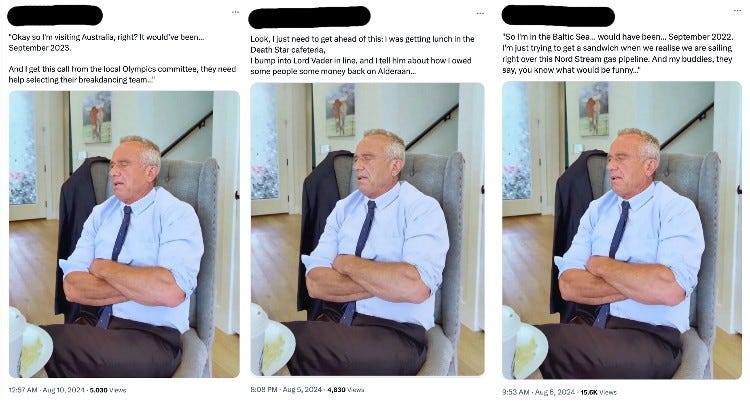
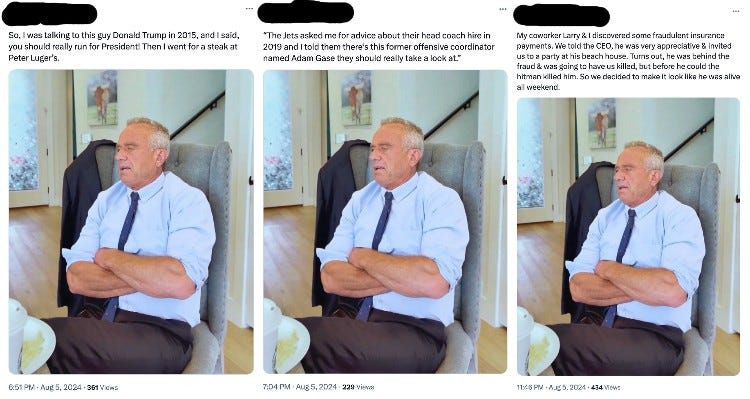
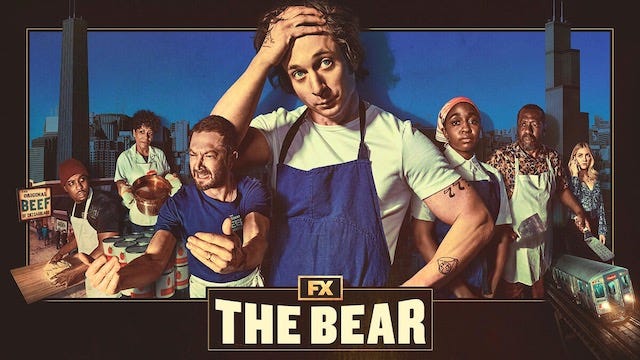
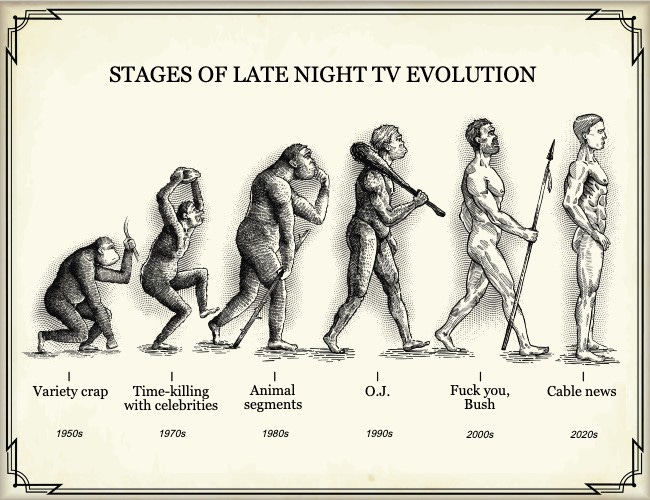
"I thought you'd killed yourself" seems too simple and common of a phrase for anyone to have any ethical kind of claim over it. I personally can't see how it would be unethical to any previous writer to include this phrase in every single script. The only disservice you'd be doing is to yourself and the audience..
I respect comics and it's a shame it's such a tough job, but I'm sorry, this only confirms my suspicion that the comedy world's standards for theft and originality are untenably high.
"That’s not joke theft, but it gets people used to the idea that comedy doesn’t really need to be your own idea." We've been repeating knock-knock jokes and street jokes since the beginning of time. So the idea is pretty ingrained in the public consciousness. I just can't see why it's so unethical to rephrase a joke and make it your own. We tolerate this in music, the visual arts, fantasy fiction. I just can't understand why comedy needs to have such a stricter standard.
The first episode of the ill-fated Disney+ series Willow features an entire scene/joke ripped from Young Guns. The whole crew rides their horses off a cliff while "Thraxos Boorman" repeatedly screams a single word in his own language. Soon after, at the bottom of said cliff one of the companions asks "what does that word mean?" Boorman replies "It means stop." The whole bit was lifted from a hugely popular cowboy movie from 1988. When I watched that first episode back in '22 the show was instantly dead for me, and I was not a bit surprised when it was cancelled after one season. Plagiarism is indeed a sure sign of lack of talent.